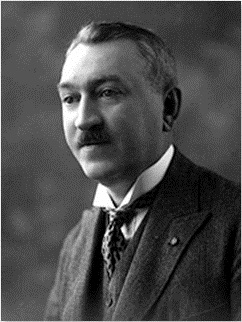(from “Musicians laugh”, a book by I. Mukha. Publisher: Musical Ukraine 1972)
The famous composer Georg Friedrich Handel received a letter saying that the University of Oxford had awarded him with an honorary degree of doctorate. In the letter, the University’s secretary pointed out that Handel should pay a certain fee for the diploma and ceremony.
– What? – the composer was indignant – I must pay to become a colleague of these windbags? Never!
Georg Friedrich Handel (1685-1759) was a German-English composer of the Baroque era, known for his operas, oratorios, and concerts.

A young man came to the old Viennese Kapellmeister, shyly asking to teach him a counterpoint. Together with the request, he brought a letter of recommendation from his previous music teacher.
Having opened the letter, the Kapellmeister read: “This subject is an empty dreamer who is obsessed with the idea that he can make a revolution in music. He has no talent at all, and he, of course, will not compose anything significant in his entire life.”
The name of this young man was… Joseph Haydn.
Franz Joseph Haydn (1732-1809) was an Austrian composer, representative of the Viennese classical school, one of the founders of such musical genres as symphony and string quartet.

Austrian composer, Anton Bruckner devoted his life completely to music. In his private life, he was a closed and unsociable person. When, at the age of fifty, he was asked why he didn’t marry, the composer replied:
– Where to find the time? Before I must compose my Fourth Symphony!
Anton Bruckner (1824-1896) was an Austrian composer, organist, and music teacher, known primarily for his symphonies, masses, and motets.

Once a young man came to the director of the Milan Conservatory and asked to examine him the entrance examination. At the exam, he played the piano and showed some of his own compositions. A few days later he received the answer: “Leave the idea of conservatory and find a teacher among the city musicians.” This was in 1832, and a few decades later the Milan Conservatory asked for the honor to be named in the memory of the musician it had once rejected. This young student was Giuseppe Verdi.
Giuseppe Fortunino Francesco Verdi (1813-1901) was a famous Italian composer. He was the author of 26 operas, requiems, and many other musical pieces.

One day a student complained to his composition teacher, Prof. Cherepnin, that his romance was not successful and asked for advice.
Prof. Cherepnin shortly answered:
– Do the following, it’s very simple: you should write ten romances and throw them into the stove. The eleventh one will be perfection.
Nikolai Nikolaevich Cherepnin (1873-1945) – Russian composer, conductor, and teacher.

Once, at the composition class of Prof. Lyatoshinsky, the topic was “sentimentalism in music”. The students pointed out that the typical titles of many popular publications of the beginning of the last century were very pessimistic. For example, “What the Violin Wept For”, “Broken Heart” and “Wounded Eagle”. In the next lesson, the professor took out old notes from his portfolio. On the cover page, the author drew a morose prisoner with a striking beard. Below was the name:
“The Night Before Execution”
Melodic waltz.
Boris Nikolayevich Lyatoshynsky (1894-1968) – Soviet Ukrainian composer and conductor, one of the founders of the modernist direction in Ukrainian music.

Related Articles:
